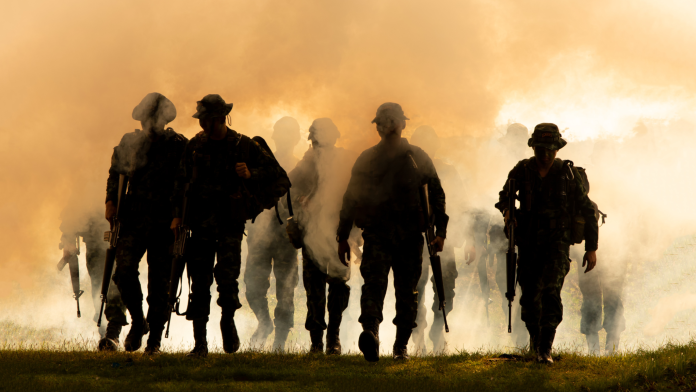Civilians in the Amhara region are being targeted by Ethiopian drone attacks as the Ethiopian army, the only armed drone operator in the Horn of Africa country, wages a full-scale war against ethnic Amhara rebels, Al Jazeera reports.
Several witnesses reported that the drone fired at the ambulance as it approached the Delanta Primary Hospital in Wegel Tena and destroyed it. Hospital staff, including a doctor and an ambulance driver, as well as employees of a nearby construction site died instantly, said Gebeyehu who requested use of his first name only for safety reasons.
“In Wegel Tena, there are still surveillance drones hovering over the sky. Everyone is afraid, so we avoid walking in large groups.”
The rebel militias, known as Fano, were previously allied with the Ethiopian government. However, the two sides split after the former refused an order to dissolve in April. Instead, they seized many of the region’s major cities in August.
In response, the Ethiopian government declared a state of emergency and deployed the army to “restore order” and suppress the rebels. Despite the lack of a formal command structure and relying largely on volunteers, Fano fighters remain active in the Amhara region, where they are widely respected.
The United Nations was able to document two other incidents, including the killing of seven people at a primary school in Wadera district on November 6 and the killing of more than a dozen people at a bus station three days later in the town of Wabirr.
These incidents highlight what the UN Human Rights Office spokesman, Seif Magango, called the “devastating impact of drone strikes and other violence on the population in the Amhara region.”
Tewodrose Tirfe, chairman of the United States-based advocacy group Amhara Association of America, said:
The drone strikes have increased dramatically in the past few weeks, and almost all the strikes have targeted civilians. The uptick in drone strikes is an indication the ground offensive by federal forces has failed and they are losing on the battlefield to the Fano.
Footage obtained by Al Jazeera showing the aftermath of the Wegel Tena drone strike appears to contradict the claim. It shows a burning ambulance with its roof sagging, consistent with a direct hit from the air. Internet access in the town was cut off shortly after the photos emerged.
Yirga Gelaw Woldeyes, a lecturer at Curtin University’s Centre for Human Rights Education in Australia, stated:
“The violence and drone strikes are part of a trend of collective punishment. The government refuses to distinguish between Amhara fighters and civilians as it prefers to demonise Amhara society as a whole.”
Yirga stated that the conflict with Fano could have been averted if the government had taken steps to address the grievances of the Amhara people in a sincere manner rather than by force.
At the same time, Mere Wedajo, a Fano military commander, claimed that the biggest obstacle to peace talks was Prime Minister Abiy Ahmed.
We aren’t opposed to peace talks in theory as the Amhara are a peace-loving people, but with Abiy, we are talking about someone who can’t honour his own word. He is treasonous. How could the Amhara people trust him?
The wars have exacerbated the humanitarian catastrophe and depleted the economy, with reports of surging starvation deaths coinciding with news that the country is on the brink of debt default.
Addisu Lashitew, a nonresident fellow at the Brookings Institution, a Washington-based think tank, said:
“It is beyond comprehension that a prime minister who was recognised with a Nobel Peace Prize would deploy armed drones to fire live bullets at his own citizens. It is both pointless and cruel. Pointless because you can’t subdue a people with an idea with bullets. Cruel because most of the victims are innocent civilians.”
